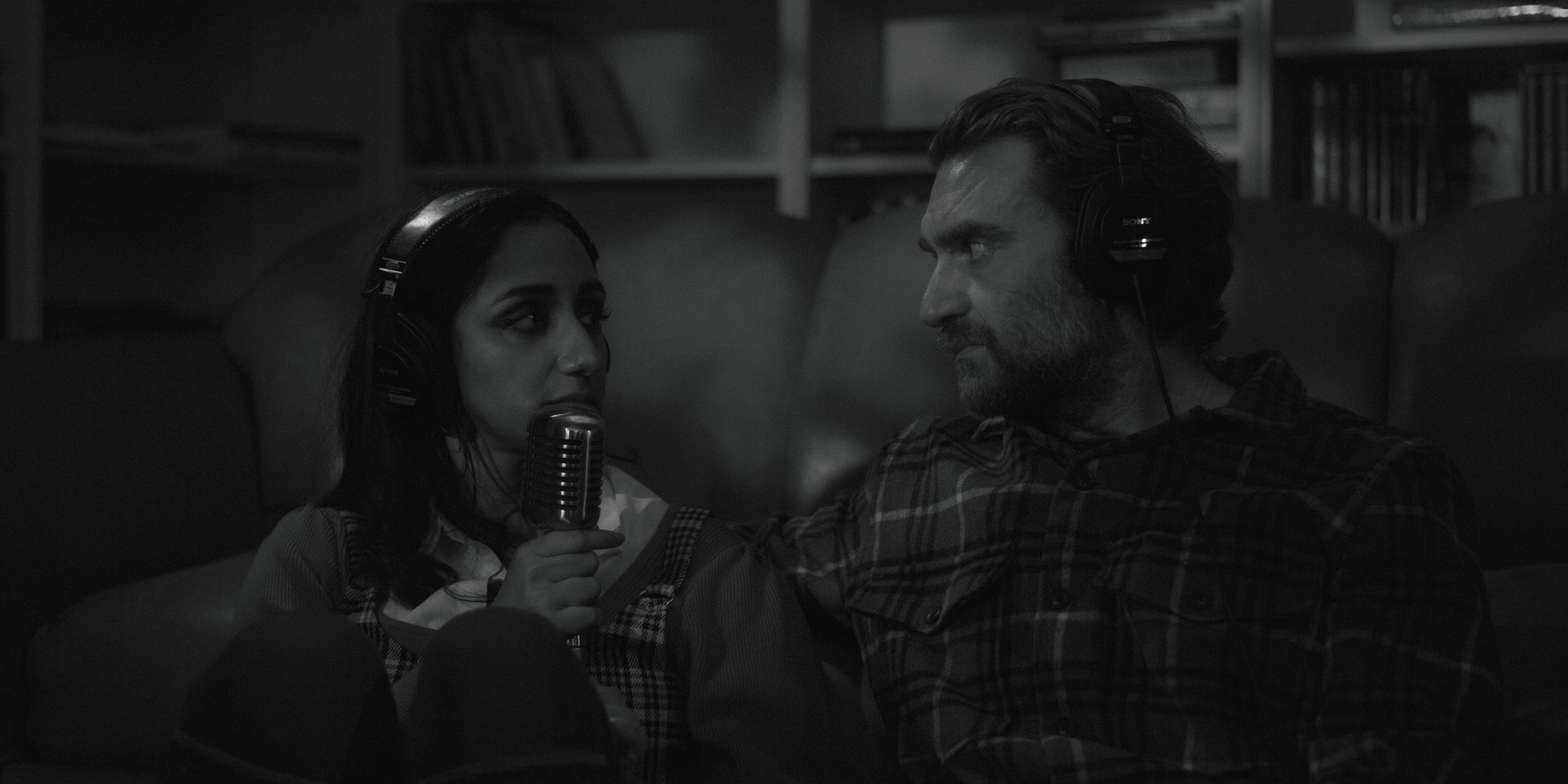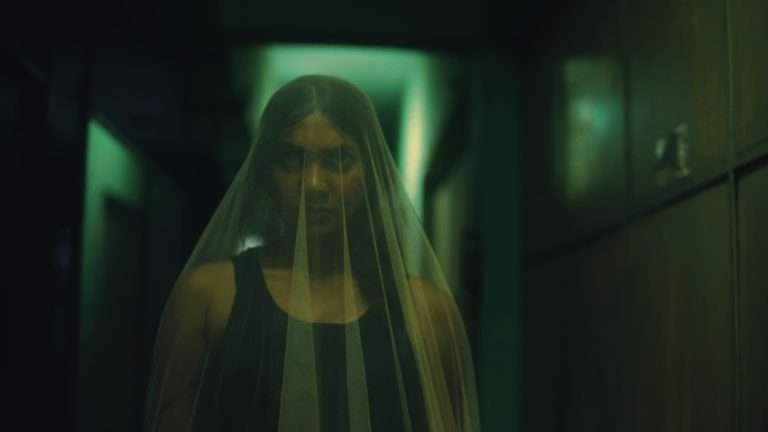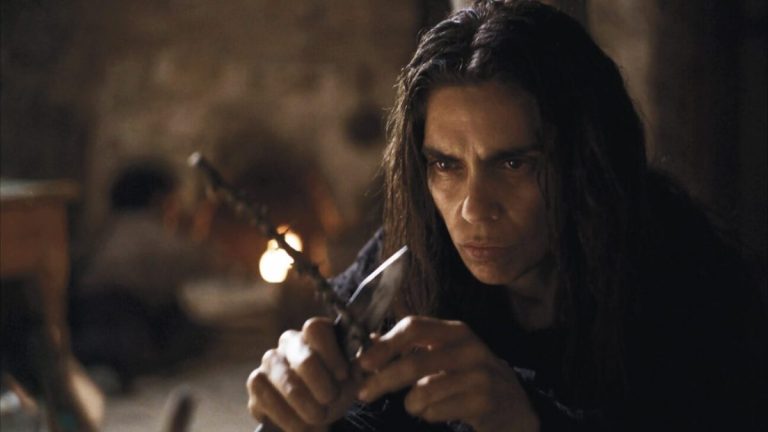Some tragedies you never move on from. Some losses are too personal. But everything ends, and everything begins again. That’s just the circle of life, and one of many things that Meera Menon’s “Didn’t Die” explores. It’s of course a post-apocalyptic zombie movie but, the horrors of living in a world infested by the living dead are less of a focus than our need for normalcy – our desperation to just set everything back to the way it was – dismissing the grief that weighs so heavily on us.
Sold as a homage to George A. Romero’s “Night of the Living Dead” with gorgeous black and white cinematography and high-framed green, stylized fonts, “Didn’t Die” follows Vinita (Kiran Deol) who runs the namesake podcast in a world that is now invested by ‘biters’ (a fancy name for zombies). Unlike most movies that feature the creatures, the world that Menon offers to us has these zombies ravaging the land only during the night time – or so the characters of the movie had thought – up until they start mutating to become smarter – this includes getting faster, roaming around during the day, and even recognizing the living so that they could target them.
The makeshift cast also includes Vinita’s dotting younger brother Rish (Vishal Vijaykumar), who, apart from helping her find more listeners to her podcast; is placed strategically to give the eventual narrative drive more emotional weight. The older, sturdier, and more mature sibling Hari (Samrat Chakrabarti), who invites his people to the home he shares with his wife Barbara (Kati Mccuen) where much of the film takes place. Additionally, to give an edge to the proceedings, the filmmaker adds Vincent (George Basil) – Vinita’s old flame to the mix, who just randomly shows up with a baby after listening to one of her episodes.

There’s not much narrative cohesion to begin with – the film kicks off with gallows humor as Vinita records her 100th episode. We don’t know why she is so eager to have people listen to her, but it is clear that she is desperately looking for some kind of normalcy after the tragedy she has gone through. It’s like a stark reminder and metaphor for the COVID-19 pandemic where the first wave of the virus brought fear and death with it – but the second wave ensured that we could never be ready for the loss that is there to top off the one we have already withstood.
Menon’s approach to the entire thing feels disjointed and not neatly tied in. The first act introduces the zombies, but since their threat is punctuated by humor, you are never truly scared about the life-threatening stakes. The middle section is like one of those hangout indie movies where characters reminisce about a time while realizing deep philosophical musings that the isolation taught them. The third act is like a representation of the cycle of life with little to no girth to club all of these ideas together.
The tonal inconsistency runs deep – so much so that the central performances – including a dedicated Kiran Deol – are also hampered. Eventually making “Didn’t Die” feel like a movie that doesn’t have much to say beyond the survivor’s guilt and trauma that the people carry. What sadly does give the film some meaning, however, is what happened with the filmmaker in real life. With the forest fires in L.A. burning down her house; the film would be like a collection of memories that attest to what she wants her movie to be about – a personal testament about the human condition that loss is not temporary – but you do learn to live with it.



![Verónica [2017]: Scariest Movie Ever, My Ass!](https://79468c92.delivery.rocketcdn.me/wp-content/uploads/2018/03/veronica-768x432.jpg)
![Beating Sun [2022] ‘Venice’ Review: Swann Arlaud is Superb in This Assured Phillppe Petit Drama](https://79468c92.delivery.rocketcdn.me/wp-content/uploads/2022/09/Beating-Sun-2022-Review-768x432.jpeg)
![Knife In The Clear Water [2017]: BENGALURU INTERNATIONAL FILM FESTIVAL (BIFFES)](https://79468c92.delivery.rocketcdn.me/wp-content/uploads/2017/02/KnifeIntheClearWater-768x384.jpg)

